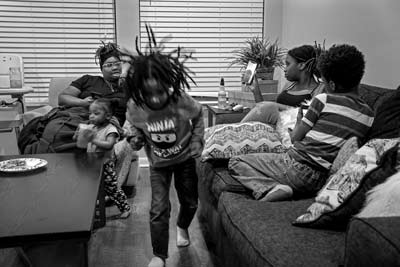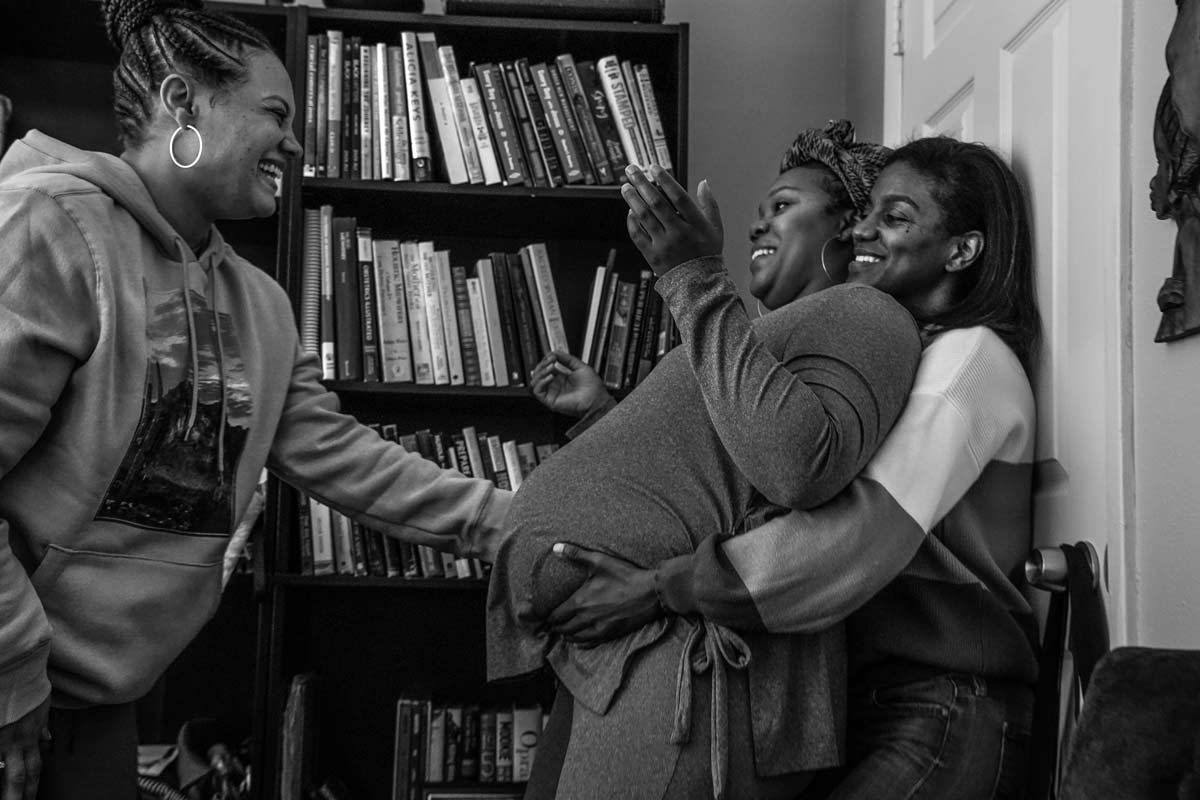By Jordan Allbrooks
Two months ago, Melissa Bryant gave birth to her first child Noah, at Mount Sinai West Hospital. “He’s beautiful, he’s perfect, I’m obsessed with him,” said Bryant.
Early on in Bryant’s pregnancy she experienced a negative interaction with her OBGYN when learning that she was carrying the sickle cell trait. “It was my first time hearing the news and she glanced right over it, as if it wasn’t a big deal,” said Bryant. This interaction pushed Bryant to find a more holistic birth plan using a doula and midwife.
“It’s more so towards just using your own body and breathing techniques and using the natural processes of just your own self. And I really like that, with current times, the maternal mortality rate is really high, especially for the minority you can call- population. So, I wanted to make sure to at least go with trying what my body could do first,” said Bryant.
In the United States Black women have a maternal mortality rate of 69.9 per 100,000 live births according to the Center for Disease Control Prevention (CDC). These statistics make Black women three times more likely to die compared to white women.
In New York City the statistics are significantly worse, making Black women nine times more likely to face maternal complications. In order to decrease maternal complications families can look to birth workers like doulas for help.
Doulas are trained individuals who can provide non-medical, emotional, and physical support to an expecting family. According to the Washington Post only six percent of expecting mothers seek doula support.
The support of a doula can look like helping the expecting family through any fears or questions that have about pregnancy, delivery or port postpartum. The support of a doula can look like guiding a mother during labor, creating a space for families to ask questions to providers, or even teaching an expecting mother new stretches to help during delivery.

New York Presbyterian Brooklyn Methodist is the only hospital out of all eight NYP campuses to offer doula services to patients. Vanessa Petgrave is the Director of Nursing for Maternal Health at Brooklyn Methodist. Petgrave is an advocate for doulas and the support they give.
“I suggest doula support to every birthing person that comes in,” said Petgrave. Currently the hospital has seven doulas on staff working full-time offering care.
“Doulas are great because they go in, they sit down, they listen about their birthing experience. They offer them tips for swaddling. They help with the feeding. They help with different positions and show you how to latch a baby in different ways,” said Petgrave.
Last March the department of Health partnered up with nonprofit doula centers throughout the city to launch the Citywide Doula Initiative (CDI).
The goal of the Initiative is to reduce birth inequalities by training 50 community members as doulas. For the next nine years the city intends on training 50 new doulas through local classes in hopes of helping 500 families by June of 2022 in 33 neighborhoods in the TRIE area.
TRIE neighborhoods are classified as areas that were heavily affected by the coronavirus and have a high percent of socioeconomic disparities. The city has granted the CDI a budget of 18 million dollars for this program.
The New York City Department of Health and Mental Hygiene chose not to respond about the payment delays or on the impact the program has made on the city. According to Mary Powel-Thomas the director of the doula initiative as of June 30, 2023 the CDI has served 1,050 clients throughout the city.
Powel- Thomas would not answer any questions regarding delayed payments or anything regarding the future of the program.
The annual report last year stated that as of June 2022 the CDI has trained over 300 doulas. Assistant Press Secretary of DOHMH Shari Logan also avoided the questions about the delayed payment and instead shared links to information about the program and the statement that Mayor Adams made when announcing the launch of the program back in 2022.
“If we want to acknowledge it or not, the reality is Black women are treated different when they go for healthcare, they are treated different, they [health care providers] believe they [Black women] have a higher tolerance of pain,” said Mayor Eric Adams.
As doulas are becoming more popular, many workers find it difficult to work full-time because of the low wages and delayed payment from the city. A newly trained dual makes between $500 to $1600 per client. With wages that low many birth workers have second jobs to sustain themselves and only work part time.
Simone Renee is a doula with the CDI and works in Central Brooklyn serving Black families for over 4 years. In order to receive payment for her work Renee must submit a claim to the city. The process to approve a claim can range in time length. At one point Renee had to wait nine months to a year to receive payment from the city. “We deserve equitable pay. We deserve on time pay because this can be a thankless job. It’s nothing like being able to know that all of my needs are met, said Renee.
Snanobia Pack, is a doula at Ancient Song Doula Services, one of the partners with the CDI. Pack claims that when she originally agreed to be a CDI doula, she was under the impression that the city would pay her within 3-4 weeks after submitting her payment claims, but that was not the truth. “I don’t think I can be a CDI doula for much longer,” said Pack “The city is good for getting people’s hopes up and then turning around and just doing all types of foolishness,” said Pack.
In the annual report for 2022 sustainability was listed as one of the challenges for doulas “Many individuals provide doula support as a secondary occupation, relying on other jobs or family members for stable income,” stated the report. The pay delays are putting the program at risk of losing doula participants. Currently, Pack has one client due in December then she plans on leaving the CDI program. For doulas like Pack the long waiting period for payment forces her to find a more reliable source of income.
Renee is one of the many doulas who have to work a second job to sustain herself.
Working as a community doula has always been Renee’s second job, recently Renee has started working as a NICU doula at Brooklyn Methodist Hospital.
“A lot of us have a 9 to 5. I know doulas that drive Uber, I know doulas that baby sit or that are bartenders on the side because it can be tough to sustain yourself,” said Renee
As the maternal mortality rate of Black women continues to rise, so will the demand for doulas.
Many doulas chose to only take one 2-3 clients per year because of the pay delays and to make time to work a second job. With birth workers being selective of the clients they take on; many families are forced to go without the additional support that the city intended for.
Reprinted from August 2023
